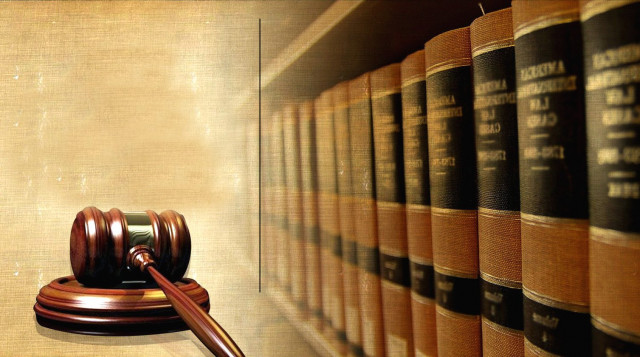PJC for eliminating root cause of litigation
Resolves expeditious disposal of civil cases will minimise ratio of criminal cases

The Provincial Justice Committee (PJC) Khyber-Pakhtunkhwa has resolved that expeditious disposal of civil cases will minimise the ratio of criminal cases and also eliminate the root cause of litigation.
In a committee meeting at the Peshawar High Court with Chief Justice Waqar Ahmed Seth in the chair, the participants also resolved that use of “modem technology is the solution for efficient revamping of the justice system”.
The meeting was convened by Secretary Law and Justice Commission of Pakistan/National Judicial (Policy Making) Committee Dr Muhmand Raheem Awan.
The meeting was also attended by the Advocate General KP. senior most District & Sessions Judge ( District Judiciary KP), Member Inspection Team. Peshawar High Court, Peshawar, Secretary Home & Tribal Affairs Department KP, Secretary Law & Parliamentary Affairs Department KP, Inspector General of Police KP, Additional Secretary Health KP, Director General Prosecution, Inspector General of Prisons, and Director Parole/Probation KP.
Chief Justice Seth remarked, “The PJC is the apex provincial body responsible for ensuring effective administration, operation and development of affair, impartial and inclusive rule of law and for addressing provincial law, justice and security challenges within their jurisdiction and has a pivotal role in provincial inter-organisational coordination and cooperation.
“The constitutional and fundamental rights available to the general public could be effectively enforced from this forum.”
In the meeting, as per mandate, steps for the speedy and inexpensive justice were discussed and call was made for capacity building of the justice sector stakeholders for quick disposal of cases and providing relief to the litigants. It was further aimed that there should be effective coordination among the judiciary, executive and other justice sector service providers.
“Such coordination would be helpful for the quick disposal and rederessal of the grievances of the public,” the CJ remarked.
Generally, the agenda items regarding improvement in case registration mechanism, timely submission of challan, video linking facilities between the courts, government departments, including prisons, capacity building of the judicial officers, prosecutors and investigation officers, establishment of forensic sciences laboratories and clarity in medico-legal reports and establishment of the separate independent prosecution department, were deliberated upon.
It was resolved that for the effective implementation, the laws related to probation/parole, prosecution would be made more effective by provision of required infrastructure and necessities.
Moreover, timely production of witnesses and safe custody of the case property, would ensure logical conclusion of the case and there is a need to devise independent management system for safe and secure custody of the case properties at Malkhanas.
It was deliberated that for revamping of criminal justice system reforms in Criminal Procedure Code, Pakistan Penal Code, Police Law and Rules, SOPs for public safety bodies Qanoon-e-Shahadat Order 1984, Telecommunication Evidence Law, Anti-terrorism Law and Anti-corruption Laws, the relevant stakeholders department would share input within 15 days.
Regarding digitalisation of case management and court records, it was deliberated that an integrated effort could be undertaken in the National Judicial Automation Unit chaired by Senior Puisne Judge, Supreme Court of Pakistan, members, including a Judge of Federal Shariat Court and from each high court.
Moreover, it was also deliberated that the ex-cadre judges having less number of cases could be assigned cases of other ex-cadre courts having large pendency.
For better coordination between prosecution and police, it was resolved that a committee may be notified by the government comprising representatives from the law, home and prosecution departments as well as advocate general office.
Moreover, it was also deliberated that all the relevant stakeholder departments may provide input upon the recommendations of the director National Judicial Policy Implementation Unit, Peshawar High Court (NJPIC) which were placed in the previous meeting of the PJC.
Further, the participants deliberated that the draft anti-corruption law addressing the requirements of anti-corruption establishment would be shared within three months.



1724319076-0/Untitled-design-(5)1724319076-0-208x130.webp)















COMMENTS
Comments are moderated and generally will be posted if they are on-topic and not abusive.
For more information, please see our Comments FAQ